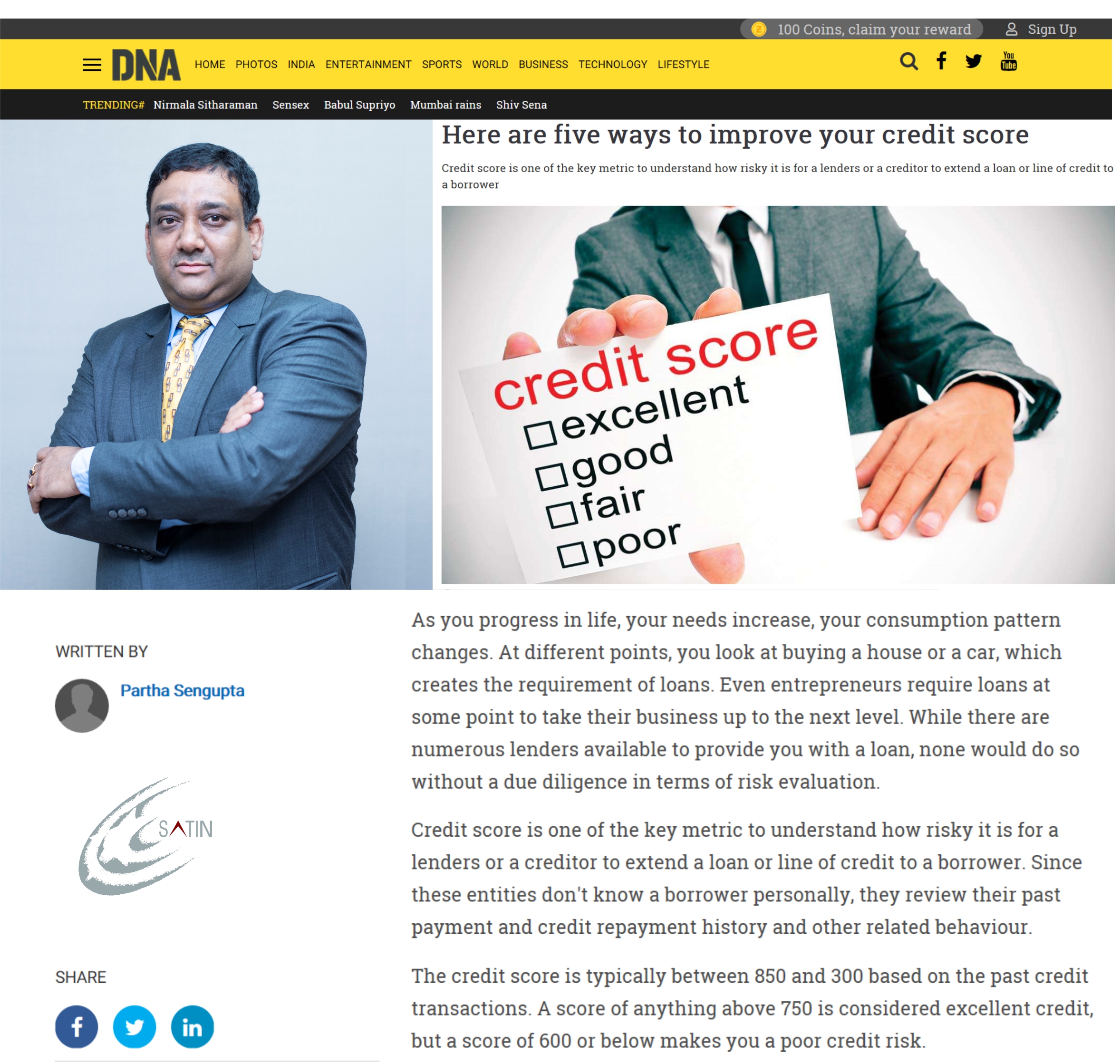
As you progress in life, your needs increase, your consumption pattern changes. At different points, you look at buying a house or a car, which creates the requirement of loans. Even entrepreneurs require loans at some point to take their business up to the next level. While there are numerous lenders available to provide you with a loan, none would do so without a due diligence in terms of risk evaluation.
Credit score is one of the key metric to understand how risky it is for a lenders or a creditor to extend a loan or line of credit to a borrower. Since these entities don’t know a borrower personally, they review their past payment and credit repayment history and other related behaviour.
The credit score is typically between 850 and 300 based on the past credit transactions. A score of anything above 750 is considered excellent credit, but a score of 600 or below makes you a poor credit risk.
EVALUATING RISK
- Credit score is one of the key metric to understand how risky it is for a lenders or a creditor to extend a loan or line of credit to a borrower
- A lower credit score makes it difficult for borrower to get a loan or a good rate for loans
So, how is credit score calculated?
A lower credit score makes it difficult for borrower to get a loan or a good rate for loans and that is not where someone would want to be. There are some changes one can make to their financial planning and their spending pattern that can help repair a poor credit score. While the credit score can’t be changed overnight, the following strategies can surely help over a period:
Don’t wait till the due date to pay bills:
A history of late bill payments can really hurt your credit score. Ensure you pay your bills on time. Enable automated payment wherever possible, else, make a note in your calendar and keep a track of your account savings and spending so that there is no last minute rush or fund crunch closer to the due dates of your bills. Continuing with this practice will eventually improve your credit score over a period of time.
Do not default on bills by more than 30 days:
Unforeseen circumstances happen and there are times when one is unable to pay off all the bills on time. If such unavoidable late payment scenario happens, try not delaying your bills by more than 30-days. This is because most of the lenders and creditors do not report late payments up to 30-days to the credit reporting agency but don’t delay it further as they will report any further delay.
Pay special attention to credit card bills:
Credit cards usually attract the highest interest for credits and loans, so it makes sense to ensure not to default on these and get them out of the way first. Just like paying bills and credits on time is a good practice, paying off your high interest credit cards first, avoiding unnecessary borrowings and taking credit only when necessary are some ways to boost credit score. Lowering credit card balance, making payment at a faster rate are some of the best ways to improve credit score.
Get rid of extra credit cards
If there is ever a moment when one feels they own more than the necessary number of credit cards, get rid of them. But decide wisely before getting rid of them. Don’t just get rid of the oldest one. The longer you’ve had a credit card opened, the more that helps your credit score (credit scoring firms deems you a reliable risk if you’ve stayed with a single creditor for a long period of time.) Rather, take an account of your card utilisation and junk the one that is least used.
Build a pool of emergency fund
Create a pool of emergency fund of at least half of annual income. This would help in safeguarding an individual against unforeseen circumstances when there is a dire shortage of funds and an individual is unable to pay the bills on time. Thereby ensuring, a robust credit and avoid any dents to the credit score.
The writer is chief process and risk officer, Satin Creditcare Network Ltd
- Date: Sep 25, 2019
- Client: Partha Sengupta
- Category: Blogs
